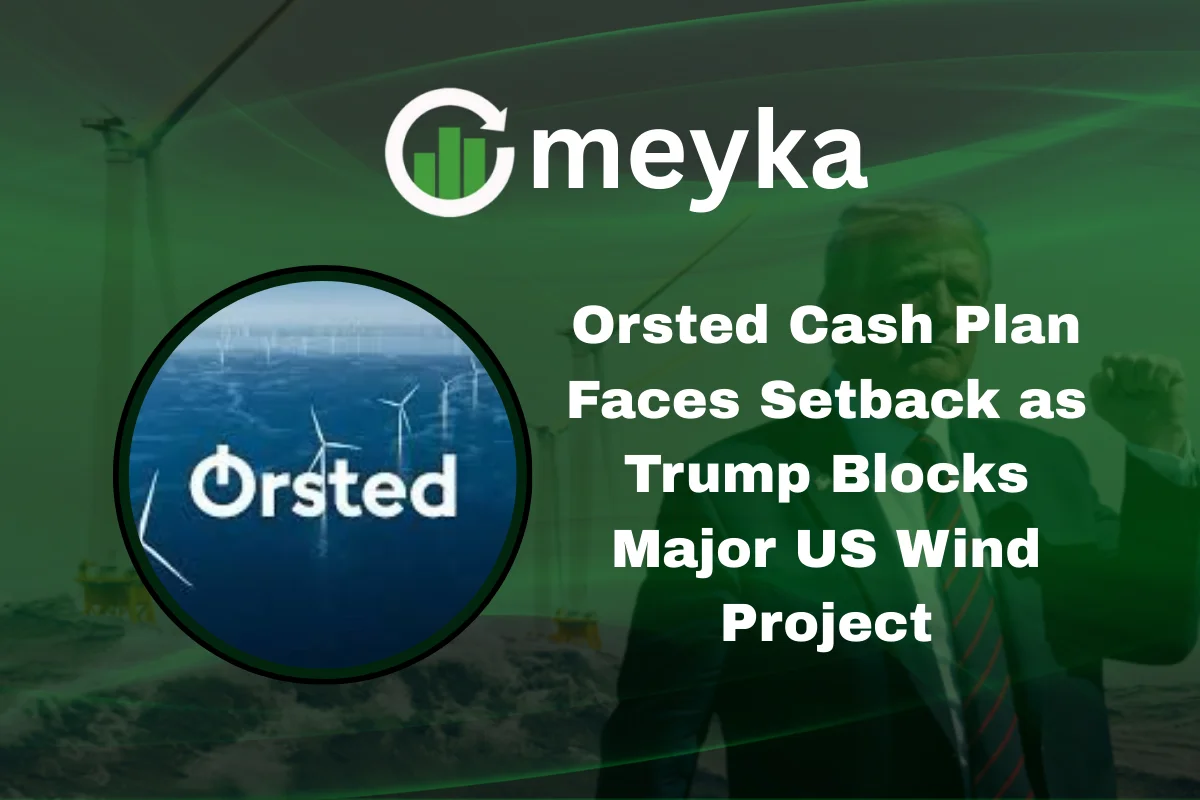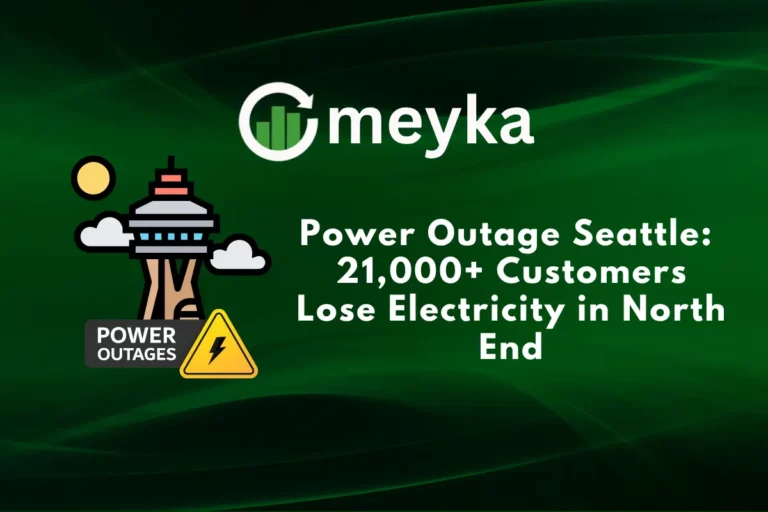Orsted Cash Plan Faces Setback as Trump Blocks Major US Wind Project
The global renewable energy transition has hit another roadblock. Orsted, the Danish offshore wind giant, faces a significant challenge after former President Donald Trump blocked one of its key offshore wind projects in the United States. This political move threatens the company’s financial strategy, particularly its carefully structured Orsted cash plan, while raising broader concerns about renewable energy investments and investor confidence.
As the world’s push toward green energy gains momentum, this setback highlights how political decisions can disrupt corporate strategies and ripple through the stock market, where investors are weighing renewable energy against high-growth AI stocks and other sectors.
Why the US Offshore Project Mattered to Orsted
Orsted’s blocked US offshore wind project was not just another investment. It was meant to be a cornerstone of the company’s North American expansion. Offshore wind power is vital to the US government’s long-term climate goals, and Orsted positioned itself as a leader to deliver this vision.
The project’s cancellation under the Trump administration has left a hole in Orsted’s long-term roadmap. Without it, the company loses not only projected revenue but also a key opportunity to strengthen its market presence in the US. For Orsted, this was a crucial building block of its cash plan, a plan that ensured stable cash flows, dividend payouts, and debt management.
Financial Impact on Orsted Cash Plan
The cancellation has immediate consequences for Orsted’s finances. Analysts warn that losing the project may force the company to cut costs, delay certain investments, or seek alternative funding sources. Orsted’s cash plan, which relied on strong inflows from the US, now faces a gap that could shake investor confidence.
Higher leverage and reduced cash flow could limit Orsted’s flexibility. This adds uncertainty for shareholders, who may expect lower returns in the near term. The issue also underscores the dependence of renewable energy firms on stable policy environments, something investors must carefully assess during stock research.
Investor Confidence and Stock Market Reaction
Markets have already shown signs of nervousness. Orsted’s stock performance has become more volatile since the news broke, and investors are reconsidering exposure to renewable energy firms with high US project pipelines.
At the same time, the broader stock market offers attractive alternatives. Many investors are turning toward AI stocks and technology-driven growth stories, which seem less vulnerable to regulatory shocks. This reallocation of capital could pressure renewable energy stocks further if companies like Orsted fail to reassure markets about future stability.
Political and Regulatory Risks for Renewables
One of the most striking lessons from this event is the vulnerability of renewable projects to political shifts. Unlike tech companies, whose growth is mostly innovation-driven, renewable energy projects often depend on government approvals, subsidies, and long-term permits.
The Trump administration’s decision to block the project highlights how quickly policy changes can derail billion-dollar investments. For European companies like Orsted, the US market suddenly looks more unpredictable. Other global renewable developers may slow their expansion plans in America until political risks become clearer.
For investors, this adds a new layer of complexity to renewable energy stock research, as policy exposure is now just as important as financial performance.
Global Push for Clean Energy vs. Political Setbacks
Globally, clean energy demand remains strong. Europe and Asia continue to set ambitious offshore wind targets, with governments investing heavily in renewable infrastructure. Orsted has been central to this momentum, operating some of the world’s largest offshore wind farms.
However, the US setback reveals the challenges of aligning local politics with global climate goals. Inflation, high construction costs, and political opposition remain major obstacles for wind energy developers. The cancellation reflects the tension between the urgency of climate action and the resistance of political agendas.
Possible Moves for Orsted After the Setback
Orsted is unlikely to abandon its US ambitions altogether. The company has already invested heavily in supply chains, infrastructure, and partnerships across North America. Still, the blocked project forces Orsted to reconsider its cash plan and seek alternatives.
Potential strategies include:
- Strengthening its European and Asian presence, where regulations are clearer.
- Building partnerships with local US utilities to reduce political pushback.
- Issuing green bonds or securing private financing to fill short-term cash gaps.
How well Orsted adapts will determine whether it can maintain its role as a leader in offshore wind while keeping investors reassured.
What This Means for the Renewable Energy Sector
This development is bigger than one company. It signals that renewable firms must manage not only technical and financial risks but also political uncertainty. Without stable policy frameworks, projects worth billions can be derailed overnight.
At the same time, the clean energy transition is far from over. Investors may adopt a more cautious approach, balancing portfolios between renewable stocks and other growth areas like AI stocks. This diversification helps hedge risks while still benefiting from sectors with long-term growth potential.
In the short term, Orsted must adjust to reduced cash flow expectations. In the long term, however, the global demand for clean energy ensures that opportunities remain abundant, provided firms navigate political challenges wisely.
Conclusion
The Trump administration’s decision to block Orsted’s offshore wind project has dealt a blow to the company’s carefully designed Orsted cash plan. The setback raises questions about Orsted’s financial outlook and highlights the fragile nature of renewable energy investments in politically divided markets.
For investors, this event is a reminder that while renewable energy stocks are central to the future, political risks cannot be ignored. Careful stock research is crucial for balancing exposure between green energy and faster-growing sectors like AI stocks.
Despite this obstacle, the global push for clean energy will continue, and Orsted’s experience shows that resilience and adaptability will be key for companies aiming to lead the transition.
FAQs
The project was blocked due to political and regulatory objections from the Trump administration, reflecting opposition to offshore wind expansion.
The loss disrupts Orsted’s cash plan, creating funding gaps and forcing the company to reconsider its debt, dividends, and investment priorities
Yes, but investors must weigh political risks and diversify into sectors like AI stocks to balance growth and stability.
Disclaimer:
This content is made for learning only. It is not meant to give financial advice. Always check the facts yourself. Financial decisions need detailed research.






